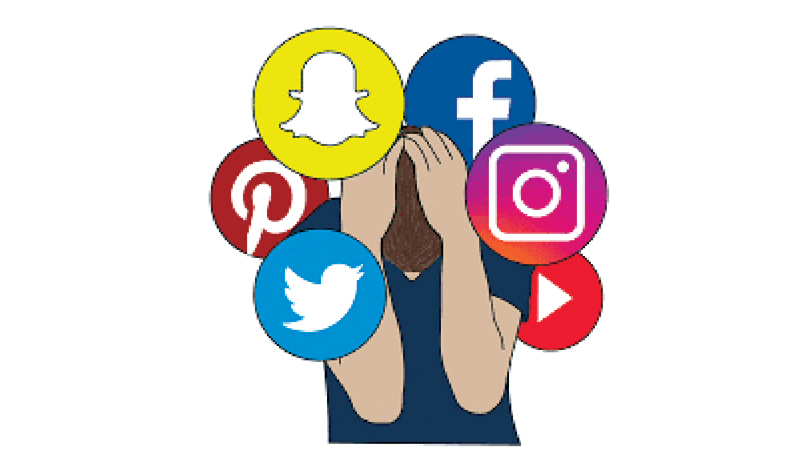In the age of digital revolution, social media platforms have become an integral part of our lives. They serve as a means to network, share, and engage with the world around us. However, not all trends that emerge in this digital landscape are beneficial. Some can be, at best, detrimental and, at worst, downright harmful. You may remember the ‘Trash the dress’ trend that went too far and caused a tragic death of a new bride who was posing in her pristine white wedding gown beside a river in Montreal.

Nalaka
Gunawardene
The desire for online recognition has given rise to countless viral challenges and trends. Some of these challenges, like the Tide Pod Challenge or the Fire Challenge, pose serious physical risks. These dangerous trends can lead to injuries and even fatalities, as individuals participate in activities without fully understanding the potential consequences.
One of the most pervasive trends on social media platforms is the use of photo filters and image-editing apps. While these tools can enhance the aesthetic appeal of photos, they have given rise to a distorted sense of self-image. Users, particularly young individuals, may feel the pressure to look flawless at all times. The unattainable standards set by these digitally enhanced images can lead to low self-esteem and body image issues. Instagram, for example, is a platform notorious for promoting such unrealistic beauty ideals.
Speaking on the impact of portraying a filtered reality through social media, Nalaka Gunawardene, Media analyst told us that, “all media content impacts us in various ways. Mainstream media always filters content too, in editorial choices, ethical constraints, as well as pressures from advertisers and owners, so it’s not only in social media that we find filtered realities.
However, social media content is different because it is user-generated without going through an editorial or gate-keeping process. This has both pros and cons. On the plus side, self-published posts and comments can be raw, honest, unsophisticated and even contentious – but in my view, these mirror our society. If we don’t like what we see on this composite and complex reflection, we must look for its roots in society itself without blaming the social media ‘mirror’ that shows it all up
Manipulation
On the minus side, social media can be manipulated commercially and politically; these spaces are also abused by a relatively small number among the 10 million or so Sri Lankans who now use social media. Social activists and researchers have been studying these issues, which provide an evidence base for a careful regulatory response – but it needs to be proportionate, enforceable and consistent with international best practices.”
Social media influencers often use puffery to hype up the functionality and quality of various goods and services they promote via social media, providing false advertisement to consumers. Speaking on this Nalaka told us, “This is in fact not different from celebrity endorsements that have been around for decades. In ALL such situations, in whatever the media, the key piece of advice is: Caveat emptor, or “let the buyer beware!”
“As consumers of media content in all media, we urgently need to enhance our media and information literacy (MIL) so we can critically examine various claims, promises and slogans. While basic literacy is high in Sri Lanka, our MIL is low which means many among us can be tricked by political campaigners, media manipulators or advertisers. Better MIL has become a survival skill in today’s information society”, he added.
Further the anonymity that social media provides can embolden individuals to engage in cyberbullying. Harmful comments, messages, and online harassment can have devastating effects on the mental health of victims. Platforms need to do more to combat this issue effectively.
The impact of these harmful trends is far-reaching, affecting individuals, society, and even our democratic processes. It is crucial to be aware of these negative aspects of social media and take steps to mitigate their effects.
As responsible users, we can support positive trends, promote healthy discourse, and advocate for better online communities. While there are strict community guidelines established by social media platforms it is apparent that they play a more active role in countering harmful trends by implementing stronger content moderation, addressing cyberbullying, and promoting digital literacy.
In the end, social media can be a powerful tool for good, but it is our responsibility to ensure that it remains a force for positive change and connection rather than one that perpetuates harmful trends. . If you’re looking to enhance your social media presence, remember to do so organically and authentically, avoiding shortcuts such as attempting to buy Instagram followers.








